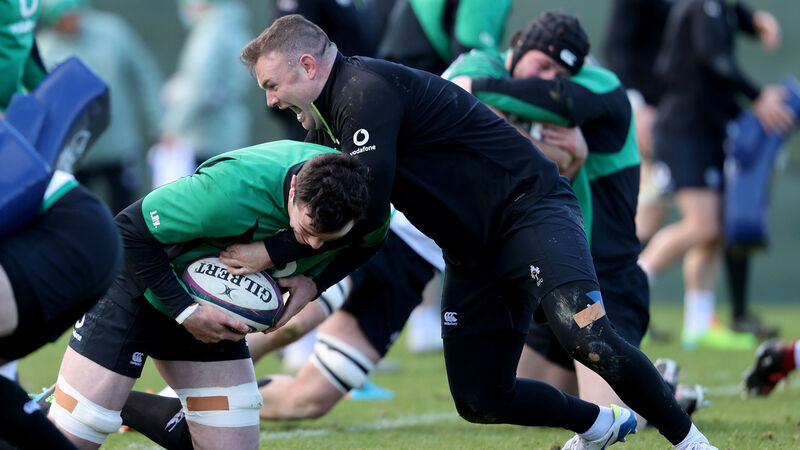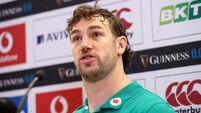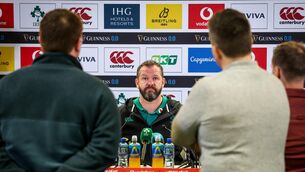Donal Lenihan: The key for Ireland - denying Scotland any reason to get their tails up

James Ryan and Dave Kilcoyne at Ireland squad training. Picture: INPHO/Dan Sheridan
While there is merit in Paul O’Connell’s assertion that this is the best Scottish team he has been involved against as a player or coach, there is still a large element of doubt surrounding their ability to get the job done under pressure.













